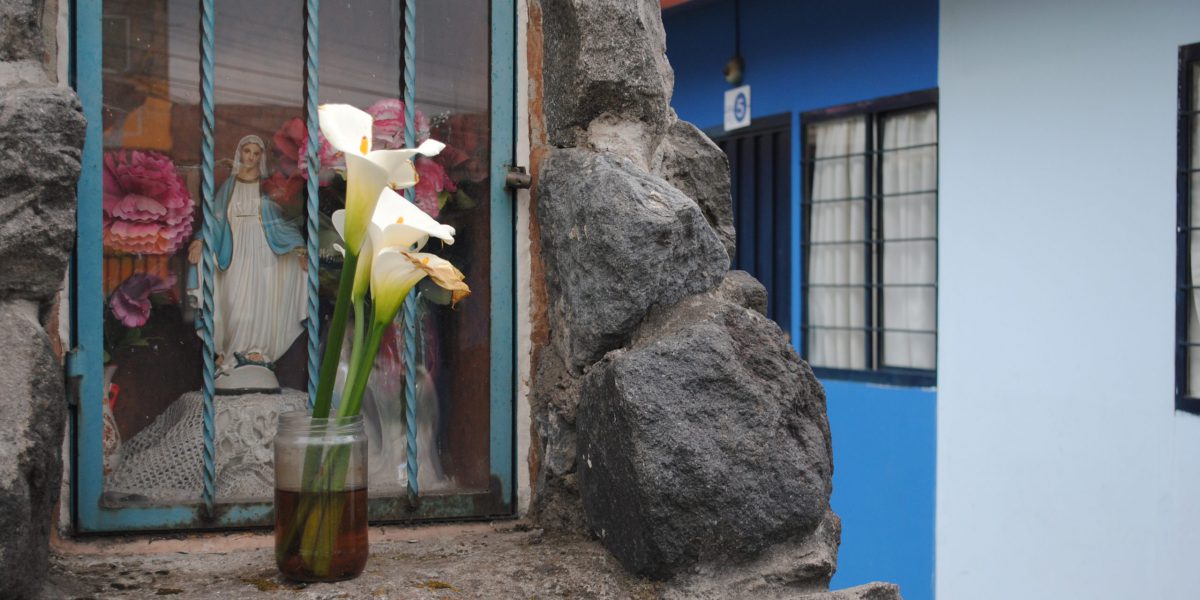Ecuador: Protection and Safety for a Mother and Son
08 May 2020

Ecuador has been implementing measures to stop the spread of the coronavirus (COVID-19) since March 17, 2020. During this period, forcibly displaced people face new vulnerabilities. In response to this, JRS Ecuador continues its work to accompany, serve, and advocate for those who are displaced.
Luisa, 39, is an Educational Psychologist and mother. For more than a decade, she specialized in accompanying children, adolescents, and young people with disabilities in Venezuela. But Luisa had to leave Venezuela, fleeing from the economic, political, and humanitarian disaster in her home country. Luisa arrived in Ecuador ten days before the health emergency for the coronavirus was decreed in the country. She came to Ecuador with Alfonso, her 20-year-old son, who has cerebral palsy and multiple disabilities to meet up with her husband, Simón, who had left a few months ahead of her.
A day after arriving in Ecuador, she and Alfonso were received at the JRS’ shelter house “Hogar de la Madre San Francisco Javier,” wlocated just south of Quito, where Simón was living for some time. At the shelter ten families, a total of 40 people, remain. They receive weekly food and hygiene kits for the health emergency (sanitizing hand gel, gloves, and masks).
Luisa explains how her travel right before the health emergency was scary, but they have been received at the shelter with welcome and hospitality. “When I arrived in Cúcuta (Colombia), on February 17, I already had certain knowledge of what was happening. We were already using masks and there were many security measures, although an emergency had not yet been declared in any country in Latin America. When I got [to Ecuador] a few days later, we knew out about the first confirmed case. I was frightened because my son had a terrible cough and red eyes in those days. At the shelter, some doctors were arranged to attend to him; Then they explained to us about the coronavirus and told us that we should abide by the government measures and stay at home. We were also provided us with chlorine, sanitizing hand gel, and face protective masks at the shelter house’s entrance, and we already knew how to use it. And, based on security measures, we started to see how we had to treat food.”
Ximena Moreno, head of the JRS shelter, comments that she “had a lot of uncertainty and fear, but we were able to explain cleaning protocols and create spaces for individual and family containment. Our priority has been to keep the shelter house open, provide people like Luisa shelter, protection, and dignified care for her, Alfonso (the only person with a disability in the shelter), and all families so that there are no infections.”
For Luisa, this effort has been significant “because it is not just being here inside a safe place, but also receiving JRS’s attention. When it comes to families with children with disabilities, our lives change a little, and when, as a mom and dad, we are on the brink of collapsing because we don’t know what to do, and it is always good to have someone who supports us and guides us. In this sense, JRS has been our support and guide”.
When the emergency is over, with Luisa, “the integration in the community will be resumed, which will include the search for work and housing; Alfonso’s integration in the educational and health systems; managing the disability care and psychosocial support for him.” During the lockdown, she gratefully searches for strategies to help the girls and boys of the shelter house in their learning processes.
“You are not just changing my son’s life, but you are saving it. You have been more than mothers and fathers, you have given us protection and safety. But beyond that, we as a family and as refugees are deeply grateful, because we know that today the situation is tough for those who are outside, for our families that we left in Venezuela, and for us who are here, facing a new challenge.”
JRS Programs in Ecuador are supported by the U.S. Department of State’s Bureau of Population, Refugees, and Migration.



